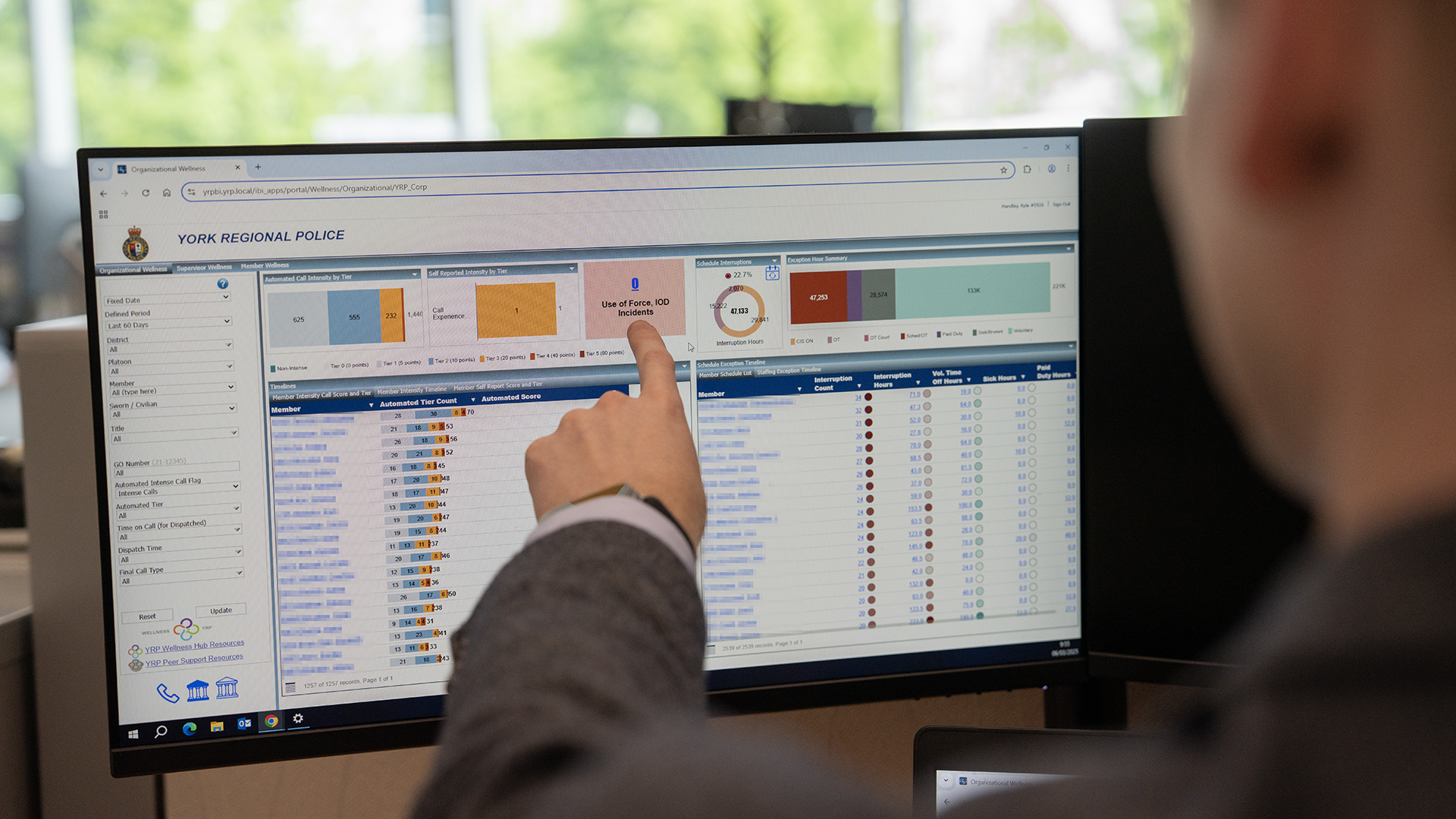
Wellness Bureau promotes physical, mental health
YRP revamps recruit training, reducing injuries and boosting confidence and safety, while a Wellness Dashboard offers proactive support to frontline staff
Injury Prevention Through Smarter Training
In the summer of 2023, YRP’s Biological Health Unit, part of our Wellness Bureau, was approached by the Health and Safety Unit and the Academics Unit to address a rise in preventable training-related injuries among police recruits during physical training.
Biological Health Supervisor Eric Donaldson was tasked with conducting an audit to determine whether existing training guidelines and practices may have been responsible. Around the same time, the Academics Unit was also seeking ways to improve the physical training curriculum, which at the time consisted mostly of bootcamp-style exercises.
The training program audit uncovered a number of shortcomings, including inconsistent practices, inadequate documentation and an absence of well-defined lesson plans—all which resulted in elevated injury risks. To address these issues, Donaldson worked with the Academics Unit to implement a new curriculum with a set structure, three distinct training levels and personalized training tailored to the specific demands of officers’ work in the field.
A pilot conducted from August 2023 to August 2024 demonstrated remarkable success: despite a 176 percent increase in recruits, injuries decreased by 55 percent, with non-contact injuries reduced by 72 percent.
“Our recruits now have a stronger understanding of how to train for the physical demands of a career in law enforcement,” said Donaldson. “This means more confidence in taking on physical challenges while out in the field. This program addresses the recruit’s individual needs and not just the needs of the job.”
Plans are in place to continue to invest in the new curriculum and expand it.


Mental Health Supports for Members Exposed to Traumatic Experiences
YRP’s Business Intelligence Unit has developed a digital tracking tool, called the Wellness Dashboard, to support member wellness. The system tracks call intensity for each frontline member, allowing supervisors and the Psychological Health Unit to monitor potential stressors and offer proactive support.
The system automatically assigns intensity scores to calls and allows members to adjust the rating based on their own experience, creating a personalized dashboard. This helps supervisors identify members needing extra support.
The dashboard also provides a work-life balance scale, monitoring schedule changes, overtime hours and time off to highlight potential burnout risks. Supervisors and mental health clinicians can also use the data to schedule face-to-face check-ins with staff.
“This system allows us to monitor the slow accumulation of low-level calls that previously went unnoticed,” said Dr. Kyle Handley, Senior Director, Wellness Bureau.
“Things that used to fly under the radar will be captured by this system because it’s continuously looking at the scores over time, as opposed to just looking at the high-level incidents.”
As of the end of 2024, the dashboard is now used by all frontline staff, and is being expanded to include 9-1-1 communicators.

The system automatically assigns intensity scores to calls and allows members to adjust the rating based on their own experience
